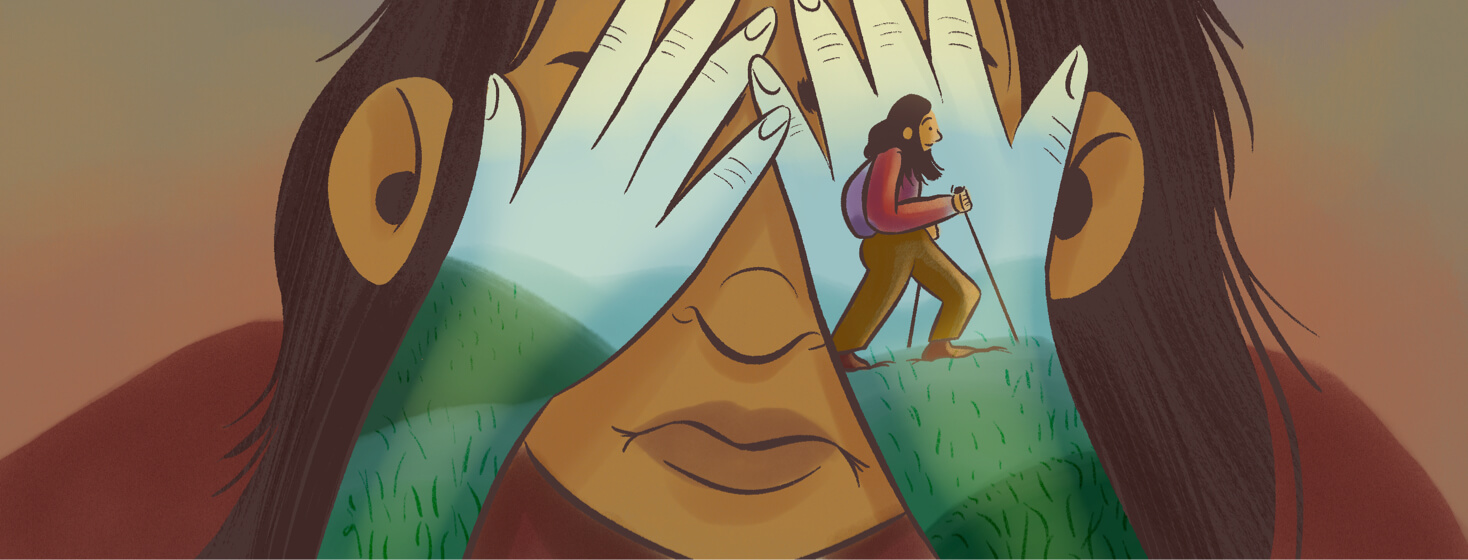Chronic Migraine Does Not Mean We Are Weak Or Less Than
Chronic migraine brings us to our knees regularly. Quite literally, many of us find ourselves on our knees, getting sick to our stomachs, and begging for mercy from the severe pain of the disease. We can’t see straight, and it knocks us off course from our daily and long-term life goals.
The demanding and depleting condition forces us to dig deep. Indeed, I would argue that chronic migraine ultimately makes us stronger and more resourceful because of all it asks of us physically, emotionally, intellectually, and logistically. Let’s break that down.
What are the physical demands?
There is no question that migraine causes wear and tear on us physically. We manage relentless and severe pain, sleepless nights, bouts of vomiting, hours curled up in a knotted position, muscle tightness, seemingly endless symptoms of migraine, and just as many side effects from medications. All of these take a physical toll on the body.
How can we care for our bodies?
With time and experience, we learn how to read our triggers, know our prodromes, and work tirelessly to find the best course of treatment for us. Through trial and error, we zero in on a protocol that hopefully decreases the severity and frequency of our attacks. Eating well, exercising in whatever way possible, and hydrating in our well-moments are really the best we can do to care for our bodies in the face of migraine.
What are the emotional demands?
The emotional toll of chronic migraine is difficult to summarize because it can be so far-reaching. We often feel we come up short in our relationships and commitments. We can feel isolated because we must labor through attacks alone. Others don’t understand what we are facing, and we, therefore, don’t frequently receive the compassion and support we need. We often feel judged, angry for having a condition we never asked for, and sad for all we are missing.
How can we find emotional balance?
The path toward handling migraine in an emotionally healthy way is not a linear one. And certainly, seeking a healthy emotional balance is never ending, just as it is in anyone’s life. For those of us living with chronic migraine, the journey is more complex, and we must prioritize caring for ourselves – seeking support from others who’ve been there, asking for help when we need it, and incorporating self-care into our well-moments.
What are the intellectual demands?
Brain fog, related both to the side effects of migraine medications and the symptoms of migraine, can leave us feeling empty and vacant. We can feel as if we’re a shell of our former selves. Unable to articulate ourselves or follow a thought, it can be embarrassing to experience moments when it seems our intelligence has disintegrated.
How can we give ourselves grace?
Giving ourselves grace when we notice we are slow on the draw can help. And making note of our capabilities in our well-moments is important too. We sometimes forget to take stock of all we are accomplishing throughout our lives despite having chronic migraine.
What are the logistical demands?
Simple tasks can become Olympic-sized feats when chronic migraine is at play. A shower can become impossible, not to mention a trip to the grocery store. This experience also hits our confidence hard and makes us feel dependent on others and incapable of managing the easiest chores in life.
How can we navigate logistics?
Pacing ourselves and remembering that our lives are lived in moments rather than full days can help. Making a plan of action to line up assistance for times when we are down for the count is never a bad idea.
What have you learned from chronic migraine?
While there are certainly days we may feel more exhausted than others, we are surely growing in our capabilities and wisdom of how to handle and respond to chronic migraine over time.
I invite you to take some time to think of how resourceful you have become over the years, both because of and in spite of the disease. If you’re comfortable, share some of your journey and well-earned wisdom in the comment section below so that we may learn from you.

Join the conversation